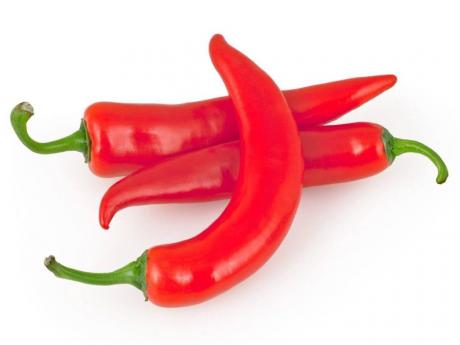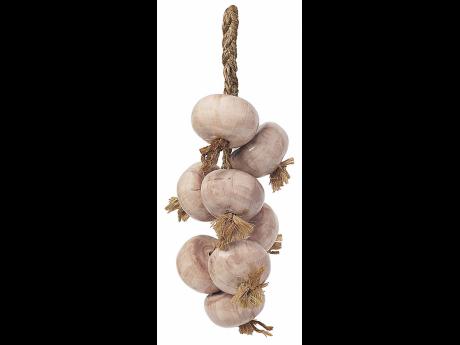Six must-have herbs for your natural medicine cabinet
WHILE MOST households contain a medicine cabinet stocked with ibuprofen and paracetamol, there are alternative natural remedies that you can use to prevent and treat a wide range of ailments.
For those who do not want to be constantly reaching for a pill and spending a fortune on prescriptions, or who are worried about the chemicals, side effects, and long-term health problems, herbs, vitamins, minerals, and essential oils offer a wide variety of benefits for many ailments. You just need to know where to look.
According to Dr Orlando Thomas, medical doctor and functional medicine practitioner at Thomas Medical and Shockwave Centre, when you are starting to stock your natural medicine cabinet, begin by breaking medicine down into categories. This is also a great way to organise your natural medicine as well. Whether it is flu season or not, natural medicine can help your family to stay healthy.
“The area of natural medicine can be a little overwhelming to begin with, but with a little research and more understanding, it can help put you at ease when it comes to natural remedies. Start off slowly and think about addressing minor concerns to begin with, like a sore throat or mild cold. Over time, you can gradually build up your natural medicine cabinet,” Dr Thomas said.
Cayenne pepper, activated charcoal, garlic, goldenseal root, peppermint, slippery elm, he said, are six herbs that are essential for your medicine cabinet.
CAYENNE PEPPER
Cayenne pepper is a hot chili in the Capsicum family, and its benefits may include relieving pain, reducing inflammation, treating colds, and more. “The spiciness comes from the pepper’s active ingredient, capsaicin, which is present in many topical preparations for aches and pains in muscles and joints. Capsaicin, an ingredient in cayenne pepper, may help with relieving pain, managing weight, easing itching, reducing inflammation, treating colds and congestion, and protecting the nervous system,” Dr Thomas said.
CHARCOAL
You can take activated charcoal in the form of a supplement. However, you should ensure you follow the dosage instructions on the packet and do not exceed the maximum dose. It may be best to speak with a doctor before taking activated charcoal daily, as there is little large-scale research to establish its benefits when it is not used in a medical setting.
“Some over-the-counter products containing activated charcoal claim to detoxify the body. However, there is little evidence to support this, and the body is typically able to detoxify itself. Additionally, activated charcoal is only effective against particular toxins in specific circumstances,” Dr Thomas said.
GARLIC
Garlic is a common cooking ingredient with numerous health benefits, including managing cholesterol, boosting heart health, supporting the immune system, protecting against the common cold, and more.
“Garlic contains allicin, which acts as an antibiotic. Garlic releases allicin when you chop or crush it, and it may be effective against antibiotic-resistant organisms. Consuming garlic may help protect against these organisms and help manage bacterial infections,” Dr Thomas said.
It is best to contact a doctor for advice if you suspect you have a bacterial infection, as a doctor may recommend an appropriate antibiotic. You can also ask about the potential benefits of garlic in supporting your recovery from the infection.
GOLDENSEAL
Goldenseal, also known as orange root, yellow root or yellow puccoon, is a perennial herb belonging to the buttercup family, Ranunculaceae. The dried underground stems (rhizomes) and roots of the plant are used to make teas, liquid extracts, tablets, and capsules, as well as natural skincare products.
Goldenseal is an excellent digestive aid since it is very bitter, which stimulates the appetite, aids digestion and encourages bile secretion. It contains berberine, which has been used in traditional Chinese medicine and Ayurvedic medicine for thousands of years to treat dysentery and infectious diarrhoea.
“Goldenseal can also be helpful to people experiencing small intestine bacterial overgrowth symptoms. Some people also use it for stomach swelling (gastritis), peptic ulcers, ulcerative colitis, diarrhoea, constipation, haemorrhoids and intestinal gas,” Dr Thomas said.
PEPPERMINT
It has been known for generations that drinking mint or peppermint tea benefits your digestion, and one of the most popular remedies for an upset stomach is to sip on a freshly brewed cup of peppermint tea.
One of the most widely known benefits of peppermint tea is for easing stomach issues. Peppermint leaves contain compound essential oils, including menthol, menthone and limonene, which can help to calm your upset stomach and aid digestion.
“Peppermint or spearmint leaves can be combined with other beneficial herbs and extracts, such as ginger, marshmallow root and camomile, to make herbal tea infusions that can deliver a wide variety of digestive benefits, such as easing constipation,” Dr Thomas said.
Doctors will often prescribe peppermint oil capsules as a natural remedy to help patients seeking medical advice for irritable bowel syndrome (IBS). Therefore, drinking peppermint tea could help to ease IBS symptoms such as stomach pain, bloating and flatulence.
SLIPPERY ELM
Slippery elm is believed to be a remarkable gift from nature that has been used for centuries to cure many health problems. The inner bark of this tree holds a substance named mucilage. This sticky substance is proposed to have a range of healing features that can help with several ailments.
“The main component which may give slippery elm its medicinal merits is mucilage. This sticky mix of sugar and polysaccharides becomes gel-like when mixed with water. Such gel can reduce inflammation in tissues. This feature is especially useful for ailments that involve inflammation and irritation,” Dr Thomas said.
In addition to mucilage, slippery elm has other helpful compounds like antioxidants and tannins. These contribute to its potential healing effects.


